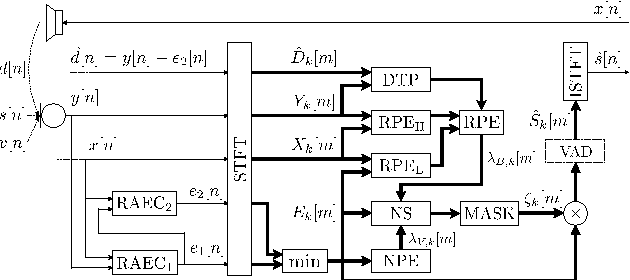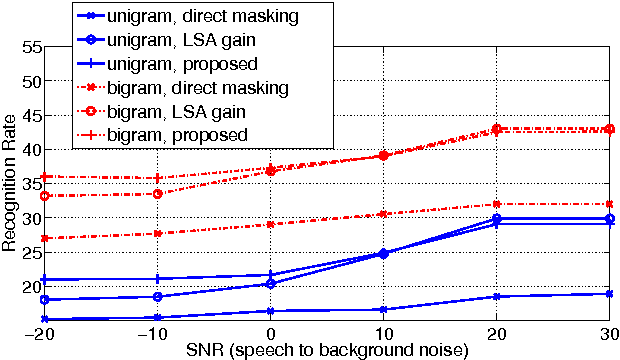Jason Wung
Design and Optimization of a Speech Recognition Front-End for Distant-Talking Control of a Music Playback Device
May 05, 2014



Abstract:This paper addresses the challenging scenario for the distant-talking control of a music playback device, a common portable speaker with four small loudspeakers in close proximity to one microphone. The user controls the device through voice, where the speech-to-music ratio can be as low as -30 dB during music playback. We propose a speech enhancement front-end that relies on known robust methods for echo cancellation, double-talk detection, and noise suppression, as well as a novel adaptive quasi-binary mask that is well suited for speech recognition. The optimization of the system is then formulated as a large scale nonlinear programming problem where the recognition rate is maximized and the optimal values for the system parameters are found through a genetic algorithm. We validate our methodology by testing over the TIMIT database for different music playback levels and noise types. Finally, we show that the proposed front-end allows a natural interaction with the device for limited-vocabulary voice commands.
 Add to Chrome
Add to Chrome Add to Firefox
Add to Firefox Add to Edge
Add to Edge